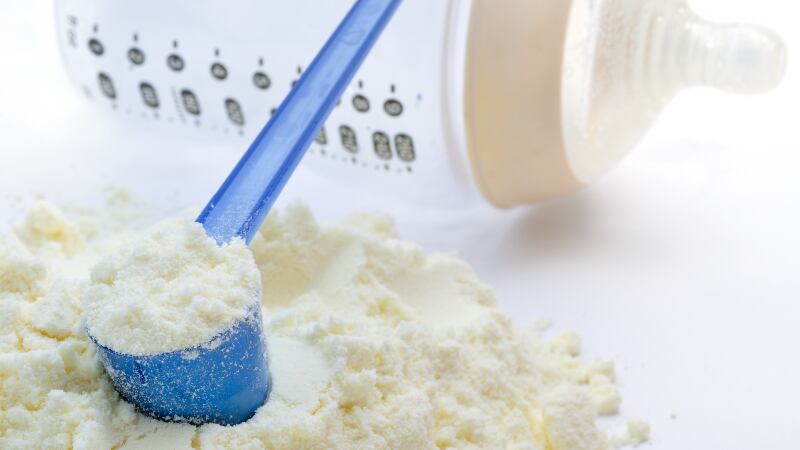Emerging clinical evidence has indicated the potential gastrointestinal (GI) benefits of milk containing only A2 beta-casein, but such data is sparse in paediatric populations.
To evaluate the effectiveness of growing-up milk (GUM) containing only A2 beta-casein on GI tolerance in toddlers, a randomised controlled trial involving 359 children in Beijing, China, was conducted from September 2018 to January 2019.
The study was funded by Wyeth Nutrition China.
The participants, aged between 12 and 36 months, were randomly allocated to A2 GUM group A, A2 GUM group B, and a conventional milk group.
A2 GUM group A received formula milk from Askeaton, Ireland, and A2 GUM group B were provided with formula milk from Shanghai, China, in an open-label manner. The nutritional content of both A2 milks, including protein, lactose and prebiotics levels, were similar.
The A2 groups were instructed to consume at least 300ml of the given milk per day during the 14-day intervention period, while those in the conventional milk group maintained their feeding habit.
Parents completed a questionnaire at baseline and on days 5 to 7 and days 12 to 14, which were used to assess milk intake and calculate the toddlers’ Gut Comfort Score (GCS).
The questionnaire included questions related to GI symptoms, such as constipation, diarrhoea, abdominal pain and bloating, and behaviours like irritability and sleep quality.
Each question had a score ranging from 1 to 6, leading to a total GCS of between 10 and 60. The higher the score, the greater the GI distress.
Based on the findings, participants without GI issues at baseline (GCS less than 17), who had switched to A2 GUM, maintained a low GCS throughout the study period.
Among 124 participants who had minor GI distress at baseline, GCS was significantly lower on days 7 and 14 in the A2 GUM groups. The symptoms were also less severe.
In addition, less constipation was reported in the A2 Gum groups than the conventional milk group.
There were no marked differences in stool consistency among all participants, while stool frequency was higher in the A2 GUM groups than the conventional milk group.
The digestive comfort of children may influence their temperament and behaviours. It was found that participants who consumed A2 GUM were more sociable and more easily soothed, but less active than those who took conventional milk.
Furthermore, the overall incidence of adverse events, such as difficulty with bowel movement, acute diarrhoea and gastroesophageal reflux disease, was low.
A total of 19 constipation and/or diarrhoea events occurred in 10 participants (3.9%) in the A2 GUM groups, whereas eight cases of such side effects were observed in five participants (3.9%) in the conventional milk group.
“We found that cow milk-based formulas containing only A2 beta-casein were easy to digest and reduced constipation, compared to conventional formulas.
“Among toddlers with minor GI distress, GUM formulas containing only A2 beta-casein improved overall digestive comfort and symptoms within one week of intervention. These findings suggested that such formulas are well tolerated,” the authors wrote.
Effects on gastrointestinal motility
Functional gastrointestinal disorders (FGIDs), a mixture of age-dependent, chronic or recurrent symptoms, are common in infants and young children. When the symptoms do not meet the diagnostic criteria for FGID, they may be labelled as mild gastrointestinal disorders (MGDs).
Although MGDs are highly prevalent in paediatric populations, they often go untreated. As such, nutritional solutions that help alleviate GI distress in children have come under the spotlight.
In China, 75% of children between 12 and 23 months old, and over 50% of toddlers up to 35 months of age consume GUM.
Cow’s milk generally contains two types of beta-casein proteins, namely A1 and A2 beta-casein.
The digestion of A1 beta-casein produces beta-casomorphin-7 (BCM-7), which has been shown in studies to decrease GI motility and increase GI transit time, thus contributing to hard and dry stools, GI symptoms such as constipation and abdominal pain, and changes in inflammatory responses.
In contrast, A2 beta-casein does not generate BCM-7.
“This suggests that milk containing only A2 beta-casein may be associated with better GI motility and reduced GI symptoms, compared to milk containing both A1 and A2 beta-caseins,” the authors added.
Nevertheless, the study consists of several limitations, including a short intervention period that could not evaluate the long-term effects of A2 GUM consumption.
Moreover, the average intake of A2 GUM on days 7 and 14 were slightly lower than recommended (285ml), and data on dietary intake other than milk products were not collected.
“Further studies with longer follow-up periods in diverse populations are warranted to confirm these findings and to investigate potential long-term beneficial effects of milk products containing only A2 beta-casein,” concluded the authors.
Source: Nutrients
https://doi.org/10.3390/nu15061313
“Effectiveness of Growing-Up Milk Containing Only A2 β-Casein on Digestive Comfort in Toddlers: A Randomized Controlled Trial in China”
Authors: Ying Meng, et al





